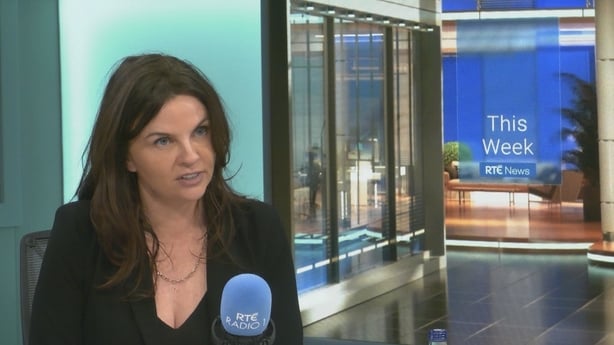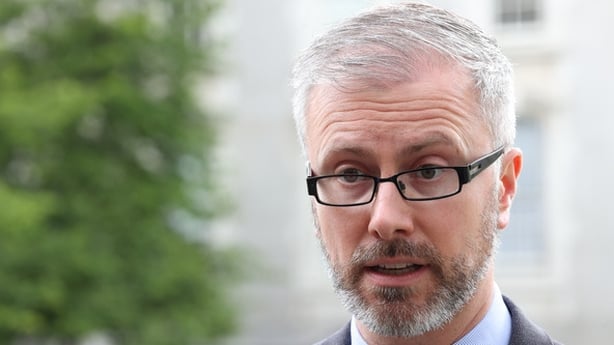The amount Tusla is spending on emergency rented accommodation has risen more than tenfold in recent years, the Public Accounts Committee has heard.
Labour TD Alan Kelly said that the increasing use of special emergency arrangements (SEAs) is "quite worrying" and described the rise in cost as "incredible".
Four years ago, "less than €5 million" a year was spent on SEAs, which "emerged post-Covid as an issue for us," Pat Smyth, National Director of Finance and Corporate Services with Tusla, said.
That annual bill now stands around €70m, the committee heard.
Tusla CEO Kate Duggan said that the increase in demand for its services has been driven by unaccompanied young people seeking international protection in Ireland.
Rented accommodation staffed by third party workers is used to give immediate shelter to young people in emergencies, she added.
'A 500% increase'
Kate Duggan said that "there has been a 500% increase" in demand for Tusla's services, "and we've had to respond to 1,200 young people" who "turn up in our office, brought from the IPO (International Protection Office) who - on that night - have to be found a bed".
Last week, "there was about 115 of those young people in an emergency arrangement", she said, along with "61 young people from what we call our mainstream system" - where numbers have doubled since she joined the agency.

Special emergency arrangements are "required to ensure an immediate place of safety for a young person," Ms Duggan said.
While they account "for a very small number of the totality of the children in our care" they remain "a priority", she insisted.
"To give a level of reassurance," Ms Duggan said, "every single one of these young people has an allocated social worker".
'Frightening'
Mr Kelly said that reporting on one care service provider which has been used by Tusla was "frightening".
As there are legal proceedings under way, Cathaoirleach Brian Stanely of Sinn Féin asked Mr Kelly to "talk about it without naming it".
"Documentation wasn't screened. Garda vetting - there was issues with that, and yet they got close on €10m over a number of years from your organisation," Mr Kelly said. "How could an organisation like this get through all the checks and balances?"
"It's the assurances we get from them," Ms Duggan replied, noting that 75% of Tusla's funding goes to community and private care providers.
"We don't see a copy of all of the garda vetting," she added.
"We want emergency provision that is registered and regulated," Ms Duggan said. However, the absence of "that multi-agency response" has led Tusla to put in place "oversight arrangements".
These include "a double lock" when overseeing unregulated services, which means that Tusla now examines all of the garda vetting documents for those services.
The agency's audit and oversight processes "picked up concerns" for the service provider in question which were "evaluated" and "looked at".
Asked what happens now, Ms Duggan replied: "We actually have to see evidence."
Tusla is doing "sporadic on-the-spot video calls into these units to check identification".
Ms Duggan revealed that Tusla ended its contracts with two service providers after its audit unit raised concerns.
"There's two agencies we've stopped engaging with," she told Social Democrats TD Catherine Murphy.
Since 2020, €4m was paid to those two agencies, Ms Duggan said, adding that there are now eight people working in the audit unit.
Unfilled posts
"We would have capacity to take 200 social workers," Rosarii Mannion, Tusla's National Director of People and Change, revealed.
"That's not saying we have 200 vacancies," she noted. "But because of sick leave, career break, churn."
"In the region of 50" posts aren't filled, she added.

Minister for Children Roderic O'Gorman told the Dáil that the care and welfare of children in care is a priority for this Government.
He said that Tusla is grappling with "difficulties recruiting and retaining staff" and foster carers, while referrals to the agency had increased 10% between 2022 and 2023 and now stand at 91,500 per year.
He said 110 new residential care placements were being created by the end of 2025.
"Tusla was given record funding for this year," Colm Ó Conaill, assistant secretary at the Department of Children told PAC.
An allowance for staff working with special care units is also being "actively followed up".

